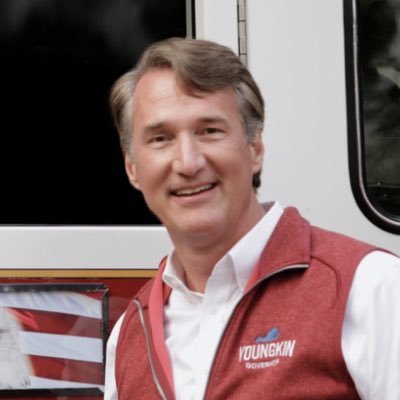By Suzanne Bowdey
The Washington Stand
More than a week after Virginia Governor Glenn Youngkin’s (R) surprise signature on a controversial same-sex marriage bill, people everywhere are still trying to make sense of the decision. No one is quite sure what the openly religious businessman was trying to achieve, since the law has no practical effect except outraging the governor’s conservative base. And while there’s never a good time to insult your staunchest supporters, the move seemed especially tone deaf in a country moving away from the extremism he endorsed.
The warning signs have been everywhere — from the blistering criticism that GOP defectors faced on same-sex marriage in Congress to the polling. Whether the media wants to admit it or not, Americans are starting to back away from the experiment Obergefell unleashed on the country. Liberals know it. During the Respect for Marriage Act debate, Senator Krysten Sinema (I-Ariz.) told reporters that “the opposition was very, very strong.” “The attempts to derail this piece of legislation,” she admitted, “were probably more focused and robust than any other bills I’ve worked on in the last two years.”
The country’s growing wariness for LGBT radicalism is obvious in everything from Time magazine’s panicky articles to surveys about marriage and the morality of same-sex relationships. Even some young people are jumping off the Left’s sexual bandwagon, hinting that they’ve finally had enough of this in-your-face agenda. It’s no wonder that Youngkin is facing fiercer-than-expected backlash. More and more Americans seem to be looking for the exits on this same-sex marry-go-round — only to watch leaders they trusted climb aboard.
In the days since the bill became law, there’s been a united front of disgust for the governor’s departure from core values. From college Republican groups to grassroots leaders, Youngkin’s name conjures up the same words: “major disappointment.” Victoria Cobb, head of the Commonwealth’s socially conservative Family Foundation, said she actively lobbied the governor to veto the bill, amend it, or just let it become law — and yet, “he chose to affirmatively put his signature on it,” she lamented. Not only will this “divide Virginians,” Cobb insisted, but there are “obvious … worldview implications of redefining the bedrock institution of marriage in law.” She pointed out that some language in the policy even “paves the way to erasing girls form sports or worse.”
Local church leaders, who’d considered Youngkin an ally, didn’t hold back their frustration. To the governor’s claim that it shields people in Virginia pulpits, Nate Schlomann, executive pastor of the Village Church in North Chesterfield fired back that it isn’t the pastors who need protection. There was “no reason” for Youngkin to sign this, Schlomann explained. “We already have First Amendment protections as pastors,” he said. “My concern is that the logic of this bill will make all other Christians more vulnerable to persecution for their beliefs in the future.”
And frankly, Schlomann said, “If Equality Virginia is celebrating your actions, you probably were not looking out for conservative Christians. This is a betrayal.”
Occoquan Bible Church’s David Schrock agreed. “When Youngkin was voted into office, Christians across the state of Virginia breathed a sigh of relief. He ran on a platform to honor faith, to protect families, and to reverse the liberal overreach of his predecessor,” the pastor pointed out. “But with this unexpected and unnecessary decision, Youngkin has not only reversed course: he has effectively broken the trust of the people who voted for him. For Christians, he has signed a bill that enshrines so-called same-sex marriage into law, but also he has exposed countless conscientious Virginians to legal threat.”
But perhaps some of the most powerful pushback came from Cornerstone Chapel’s Gary Hamrick. The senior pastor of one of northern Virginia’s largest churches was unequivocal when he addressed Youngkin’s mistake from the pulpit. “We have a moral obligation,” he told all three services, “I don’t care whether you’re governor or whether you are a housewife or whether you are a business owner; whether you’re a teacher or whatever capacity you serve — we always have a higher moral obligation to the word of God and God’s standard than man’s law. And whenever man’s law is in contradiction [with] the higher standard, we better take the higher standard every time.”
Hamrick explained that he’d texted privately with the governor, who graciously replied and offered to write a personal message to Cornerstone’s church family. The two men discussed the letter in a lengthy phone call that Pastor Gary detailed on “Washington Watch” with Family Research Council President Tony Perkins. Like Cobb, Hamrick felt Youngkin’s gravest offense was “as a believer, for him to put his signature to a law …. that is a clear violation of the higher moral standard of God’s law. That’s where I strongly disagree with what he did,” he said. “And for believers to know that he’s done this, it felt like a betrayal.”
Like so many people, Hamrick admitted, “… [W]e thought that he was going to govern in a way that was consistent with our biblical values. And on this one, in my opinion … he got this one wrong. He’s still a brother. Again … he’s not a perfect person. We’re all flawed, but he got this one wrong,” Pastor Gary emphasized. “And I just tell our folks, this is a good reminder: Put your confidence in the Lord, not in a political leader. They will sometimes disappoint. I, as a pastor, will sometimes disappoint. We are flawed people. And so keep your eyes on Jesus. That’s the bottom-line message.”
Perkins, who’s experienced this kind of political backstabbing firsthand, applauded Hamrick for reaching out and having a conversation with the governor. “This is where I think the role of pastors [is] so important, because, while he did not change this — this law is in effect now — I do think that next time he’s going to be a little more cautious,” he predicted. “I’ve actually encountered that myself … [and] the elected official in the particular case I was dealing with said, ‘You know what? I just wasn’t thinking through it. I should have called. Next time, when there’s an issue like this, I will.’ And I think part of it is helping people walk through this [to understand] how God speaks with clarity to so many of these issues.”
Unfortunately, that won’t save the thousands of Virginians who’ll almost certainly be affected by Youngkin’s treason. As Perkins pointed out, “Downstream from Governor Youngkin is going to be a teacher … a police officer, a fireman who is a believer and understands the Word of God as supreme. [And] they may lose their job as a result of what the governor did…”
As a matter of fact, Hamrick said, he’s already heard from a local county clerk who thinks she’s going to have to find another job. Because, for all of Youngkin’s phony claims about HB 174’s robust religious freedom component, there’s no conscience rights carve-out for everyday people. They’re the ones being thrown in front of this speeding train. And yet, Perkins insisted, “Religious freedom is not just for pastors and for churches. It’s for the American people, for that clerk, for that police officer, for that fireman, for that teacher. And that’s what … the governor facilitated by putting that very limited language in there…”
Ultimately, Pastor Gary said, as hurt and discouraged as people may be by Youngkin’s actions, now is not the time to throw up our hands and walk away. This is “not going to dissuade me,” he wanted people to know, “because we still have to stay in the fight. And just because from time to time, a political leader might let us down — [like] the case here recently with HB 174 — does not mean that we check out. I mean, if anything, it means we have to be even more vigilant.”
Look, he told Tony, “I have to be honest with you. When this happened, I asked myself, ‘How much have I been praying for my governor?’ Because … sometimes what happens is when we vote for a person who’s super close to our biblical values — I mean, Glenn Youngkin is a brother; he’s a believer — it’s easy for us as the church to check out and to sit back and go, ‘Well, we got this now because we have ‘one of ours in office.’ And that makes us lazy as Christians. And then we get a candidate in there that we don’t like and has terrible policies, and then we step up our prayer life. Why is that? It’s terrible. I felt convicted myself. You know, I should have been praying for him more. I shouldn’t have been as relaxed to think we got a candidate on our team in the office there, so we’re good to go. So Christians have to stay engaged. I don’t care who’s in the White House or who’s in the governor’s mansion.”
You’re right, Perkins said. “We need to pray more for the good guys, because they are constantly under attack and the burden that they carry — I know from personal experience and from walking with many of them — the forces [of evil] that come against them because we’re in a spiritual battle … are unrelenting.”
At the same time, we’re all human. We all fail, he underscored. “Forgiving is confronting, having the conversation. And then we continue. We don’t ditch the relationship.”
No, Hamrick agreed. “That’s what the liberal culture does. … We have disagreements, and we press on and we fight for what is right. But somebody once told me that speaking the truth is the highest form of respect. And I showed my respect to my governor, and I shared the truth with him, and he heard me. And I pray, like you said, that maybe it’ll go a long way to second-guessing or thinking more carefully about another matter that might come up in a similar way.”
In the meantime, the sting of what Youngkin did still hurts. He gave into the folly that he could ingratiate himself to a movement that will never accept him. And in the process, innocent people who believe God’s truth will pay for it.
At the end of the day, Christians can forgive — but can voters forget? It’s a gamble Youngkin may wish he’d never taken.
















